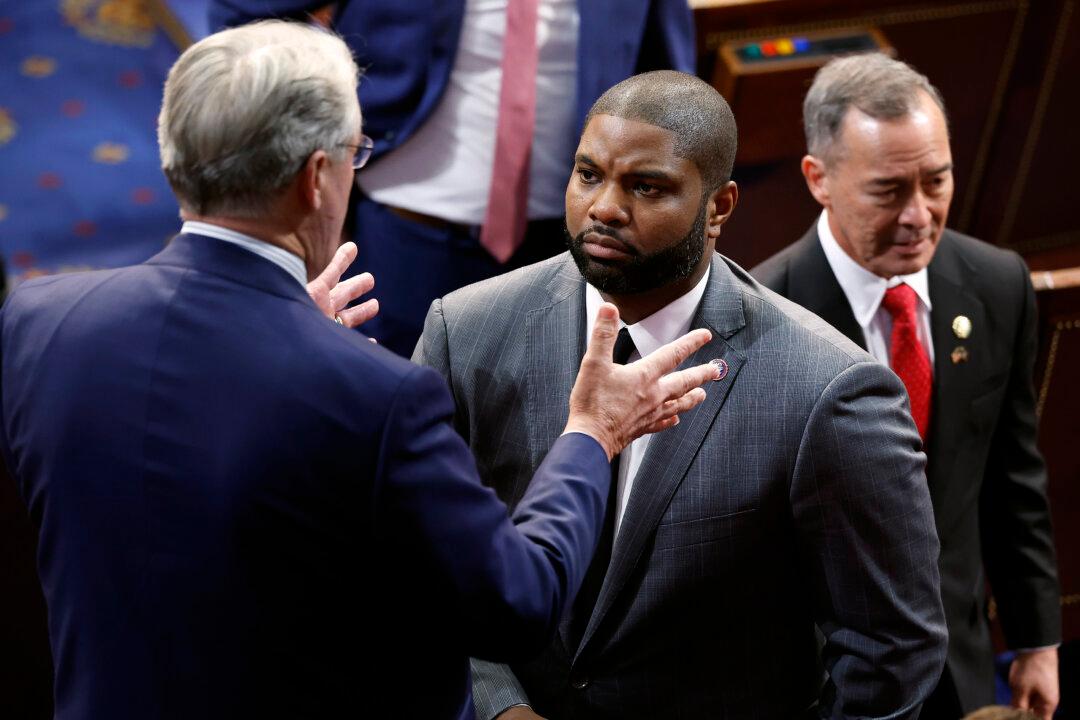Rep. Byron Donalds (R-Fla.) flipped his vote against Rep. Kevin McCarthy (R-Calif.) for House speakership during the third round of voting on Jan. 3, despite voting for the Republican leader on the first and second ballots.
“These continuous votes aren’t working for anyone,” Donalds said in a Twitter thread following the flip. “When the dust settles, we will have a Republican Speaker, now is the time for our conference to debate and come to a consensus. This will take time,” the congressman wrote.




